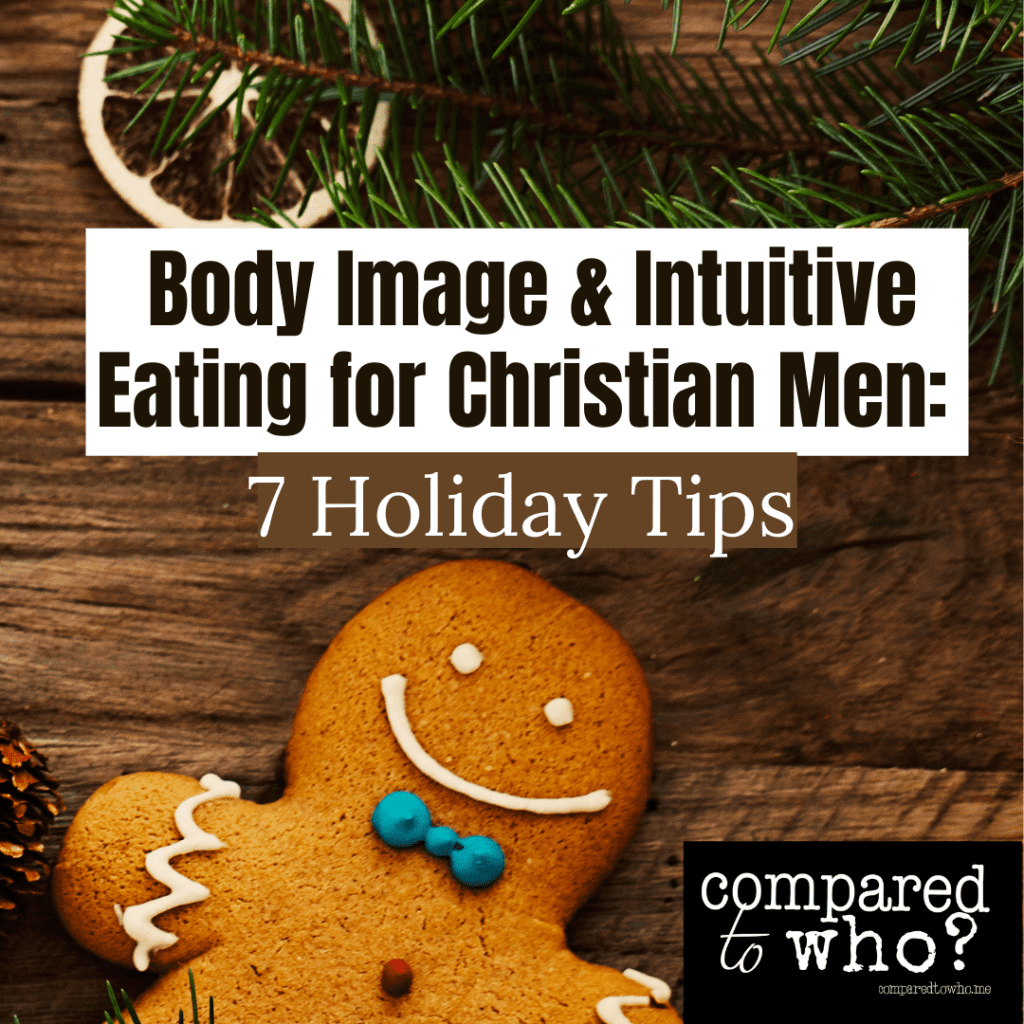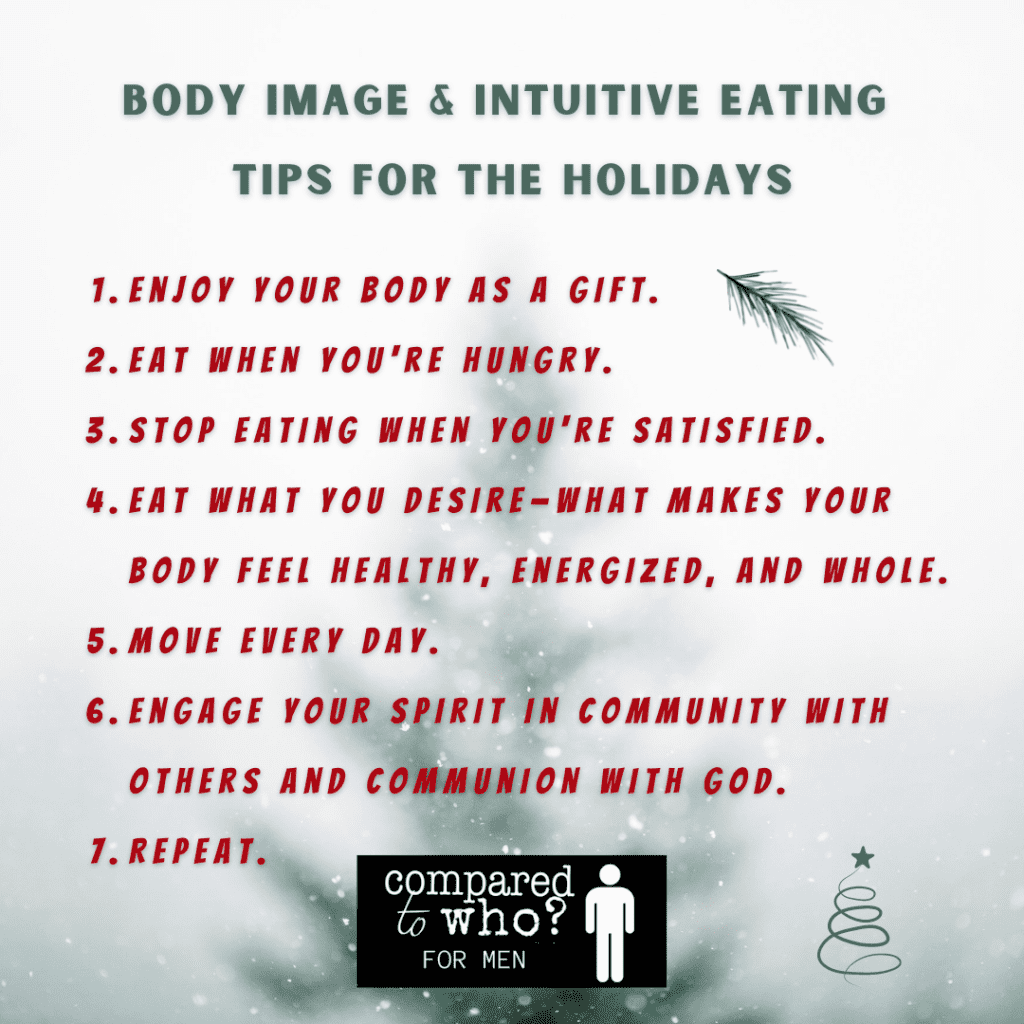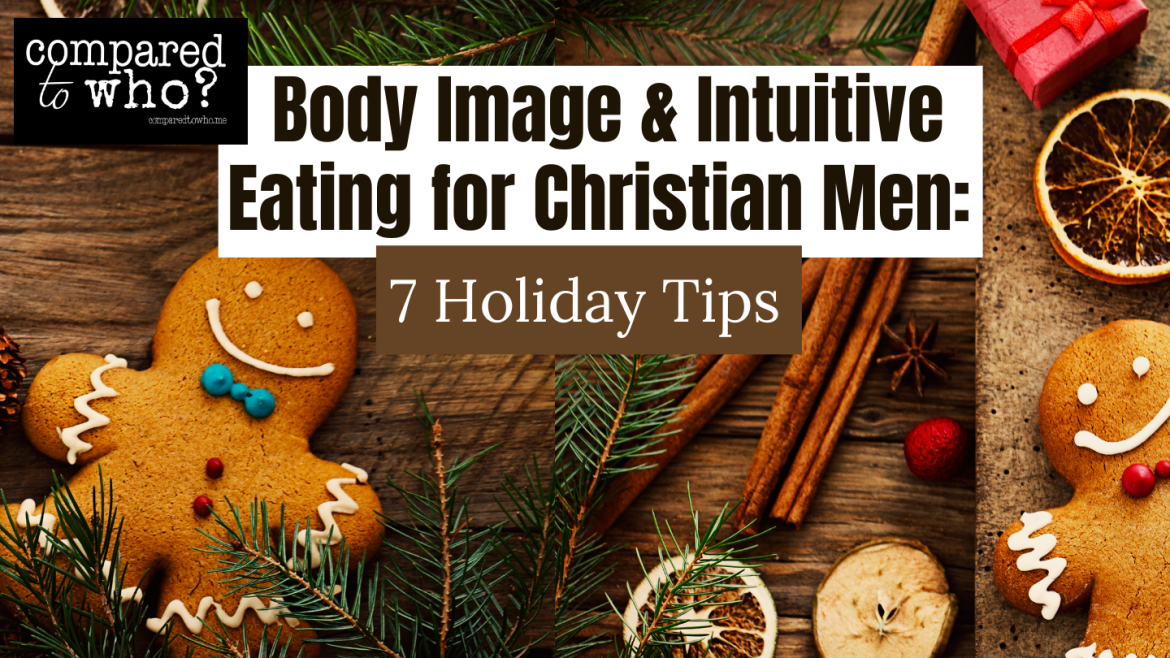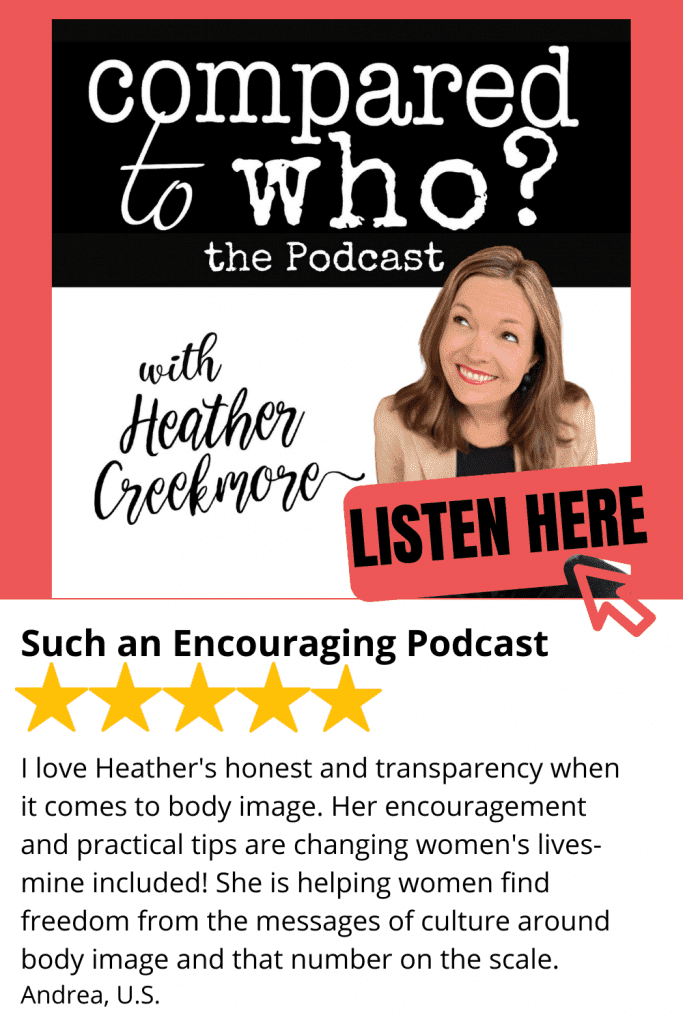You might dread the holidays if you wrestle with your body image or your relationship with food. But I say, be excited, for in challenges we find opportunities for growth.
Know that as the holidays approach, the only way out of your body image struggle is through it. And to help you along, here are 7 Tips for the Holidays:
1. Enjoy your body as a gift.
In a time of gift-giving, revel in the fact that your body is a gift from God. You might not love the way your body looks, but it is safe to say it was created, in part, to be enjoyed. God made our bodies capable of experiencing great pleasure when used in accordance with His will and moral code: in visions of fall leaves and Christmas trees; in the voice of a friend or the sound of inspiring music; in the rich aromas and flavors of tasty food; in the heat of a decoration-adorned fireplace or a comforting hug from loved one. It is through your body that you can be blessed and bless others—and in that you can find joy, especially during the holidays.
2. Eat when you’re hungry.
Most diets are attempts to “trick” your body into losing weight or to manipulate your mind to develop temporary willpower to deny your hunger. There are no tricks in the intuitive eating approach. It is based on the body’s built-in mechanisms for self-maintenance, and it works well during the holidays, as it does during the rest of the year. You do not need to wonder, worry, or overthink when it comes to eating during the holidays, a time of year focused on gatherings filled with glorious delicacies. When should you eat? When you’re hungry—that’s your body’s way of letting you know that it needs food. It’s that simple: Eat when you’re hungry.
3. Stop eating when you’re satisfied.
If you’re like me, eating can quickly descend a slippery slope from a distinguished encounter with delectables to a shark-like feeding frenzy. But, like eating when you’re hungry, proper respect and maintenance of your body requires that you stop eating when you’re satisfied. Satisfaction is our body’s way of expressing that it has had enough food for now. It’s not always fun to stop eating when we are in the midst of experiencing great joy in the food, especially during the holidays: turkey drenched in gravy; a volcano of mashed potatoes erupting with melted butter; and the sweets, oh the exhilarating sweets!
This takes practice, but you can do it. And there is a hidden treasure in this otherwise self-limiting tip: If you love eating, keep in mind, when you stop at satisfaction (instead of when you’re stuffed), you will be hungry again sooner, at which point you will get to enjoy some more stuffing or cranberry sauce or pumpkin pie.

4. Eat what you desire—what makes your body feel healthy, energized, and whole.
This one you can think of as being similar to dancing, as it relies on a graceful coordination between your intellect and your desires—and it takes time and practice to get good at it. Your body was designed to know what it needs (a balance of proteins, carbohydrates, fats, vitamins, minerals, water, etc.)—and it craves what it needs, though it can also crave what is emotionally satisfying. In my dance analogy, your intellect is the leader and your desire the follower. Ignore your desire and the dance floor will transform into a wrestling mat as your desire fuels irritability. Let your desire lead, and you might stop dancing altogether and park yourself in the buffet line. This is how the dance works over time:
- Eat what you crave.
- Shape what you crave, over time, by informing yourself about what nutrients your body needs and trying a variety of foods—especially fun during the holidays.
- Make adjustments based on how the foods you choose make you feel after eating them—i.e., choose foods that you enjoy and that leave you feeling energized and satisfied.
- Find a balance of food choices that is both pleasing and healthy.
5. Move every day.
Your body is designed to move a lot—to walk, exercise, lift things, to build. And this is true all year long, even during the holidays.
Just as your body knows when it is hungry and satisfied regarding eating, it also experiences the built-in need to exercise. When I drop off my 11 year-old son at school, he hops out of the car, gets his backpack and violin in place, and bolts, running full speed, even though he has plenty of time and could easily walk onto the campus.
As we age, this bodily desire for action certainly decreases naturally, but we dampen it further by ignoring our body’s need to move. We get lazy. We give priority to the body’s other need for rest and often choose activities that have no physical component beyond clicking a button on a remote or sliding a finger across a screen.
The impulse to exercise is not the same as hunger. It is much quieter. Exercise can be engaged in as an act of faith: Exercise your body every day, whether you feel like it or not, and you will experience the satisfaction of the exercise once it’s started or once it’s over. For me, it almost always starts with this act of faith that it will be enjoyable, and it always pays off.
Here are some ways to move every day during the holidays:
- Make it a habit to do a couple sets of pushups, sit-ups, or squats every day—this is free, builds muscle, makes you stronger, and takes a few minutes a day. Bonus points if you buy a set of dumbbells or a dip station and add some curls and dips to your routine.
- Take a martial arts class.
- Walk around your neighborhood and check out the decorations your neighbors put up.
- Fire your gardener! Mow that lawn and rake those fall leaves yourself.
Exercise does not have to be strenuous. It can be fun. What better time than during the holidays to establish a new routine of pushups or walking or gardening—or anything else that gets you up and moving your body every day.
6. Engage your spirit in community with others and communion with God.
This one, friend, is what the holidays are all about. On Thanksgiving, we expressed gratitude to Almighty God and to each other for our blessings. And as Christmas approaches, we consider with awe that the omnipotent Creator of the Universe joined humanity in the flesh—in a body.
We can assume Jesus enjoyed His body, as joy is a fruit of the Spirit. He ate when he was hungry. He surely stopped eating when satisfied. He presumably ate what he pleased, which included a post-resurrection meal of fish and possibly honeycomb. He regularly walked back and forth between Capernaum and Jerusalem, about 80 miles each way. And he epitomized Tip 6, engaging His Spirit in community with others and communion with God. When we do the same, we find joy, peace, and satisfaction in His presence. And in that sacred place, there is no use for doubts about how we look, obsession with what we eat, or absorption with ourselves.
7. Repeat.

Sean Coons is a writer, musician, and educator living in Idaho’s Treasure Valley with his wife and son. Sean’s novel,Firefly, is a comedic middle grade adventure. He is also the author of Body, a Christian fiction comedy exploring body image and intuitive eating. Connect with Sean at www.SeanCoons.com, Facebook, Twitter, and Instagram.





0 Comments